Leigh MacMillan
-
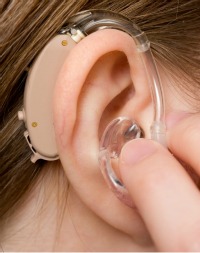
Getting the right fit for hearing aids
The pattern of hearing loss across sound frequencies affects the benefit from hearing aids. Read MoreSep 8, 2011
-

Starvation diet kills staph bacteria
The antibiotics of the future could take a page from the immune system’s playbook – and “starve” bacteria of the nutrients they need. Read MoreAug 26, 2011
-

Heart attack repair kit
A certain signaling pathway could be key to improving cardiac repair after a heart attack. Read MoreAug 16, 2011
-

Depressed brains more stressed
Patients with major depression may have altered gene expression associated with stressful conditions in certain brain areas. Read MoreAug 11, 2011
-

Kidney dopamine regulates blood pressure, life span
Vanderbilt University Medical Center investigators have demonstrated that dopamine produced outside the brain – in the kidneys – is important for renal function, blood pressure regulation and life span. Read MoreAug 5, 2011
-

Clear vision of protein interactions
Researchers identify protein partners that may keep the lens of the eye transparent – and free from cataracts. Read MoreAug 5, 2011
-

Deciding who’s who in heart valves
Identification of a gene that is involved in the development of heart valves offers new insights into congenital heart valve disease. Read MoreJul 29, 2011
-

Give me some skin
A new understanding of the biochemical pathway that builds our skin barrier could lead to treatments for skin diseases. Read MoreJul 21, 2011
-

Dad’s diet influences birth timing
It may be possible to prevent preterm birth by modifying the father’s diet before a baby's conception. Read MoreJul 20, 2011
-

Stomach bugs impact nutrient levels
Helicobacter pylori, a bacterium that infects half of the world’s population and increases the risk for stomach cancer, appears to impair nutrient absorption. Read MoreJun 30, 2011
-

Protecting brainpower during radiation
Blocking a certain protein during radiation to treat brain cancers could protect the brain’s thinking powers. Read MoreJun 29, 2011
-

Antioxidant genes keep stomach moving
Antioxidant genes may be good targets for treating a stomach disorder that affects up to 40 percent of patients with diabetes. Read MoreJun 24, 2011
-

Fine-tuned protein makes memories
Researchers discover new wrinkles in how proteins build memories. Read MoreJun 24, 2011
-
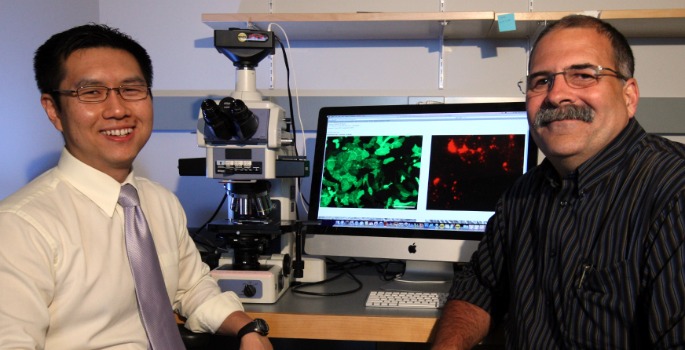
Receptor ‘ties’ together blood flow, atherosclerosis
A discovery about the causes of atherosclerosis, a cause of heart attacks and strokes, may lead to new treatments. Read MoreJun 22, 2011
-
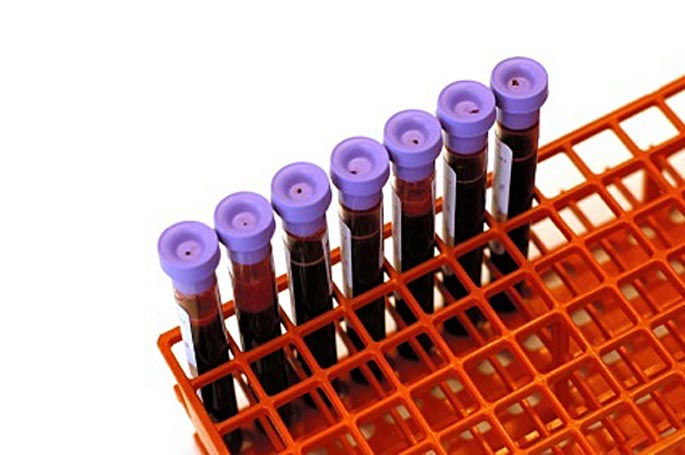
Magnesium affects prostate cancer risk
Low blood levels of magnesium are associated with more aggressive prostate cancer, a recent study suggests. Read MoreJun 3, 2011
-
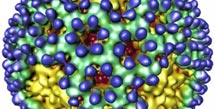
Cells open doors for reovirus
The cellular factor Src helps reoviruses enter cells. Read MoreMay 13, 2011
-
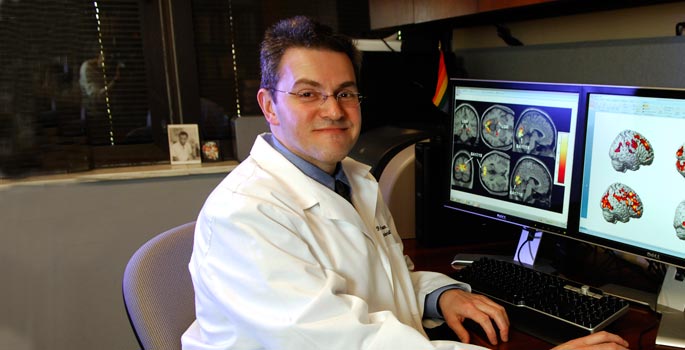
Ecstasy associated with chronic change in brain function
Recreational Ecstasy use is associated with a chronic change in brain function, raising concerns about proposals to use it to treat post-traumatic stress and other disorders. Read MoreMay 5, 2011
-

Gene variant impacts exercise blood pressure
Subtle genetic changes can have big effects on blood pressure while exercising. Read MoreApr 28, 2011
-

Fishing for a new model of tuberous sclerosis complex
A zebrafish model of the genetic disease tuberous sclerosis complex will speed new discoveries. Read MoreApr 27, 2011
-
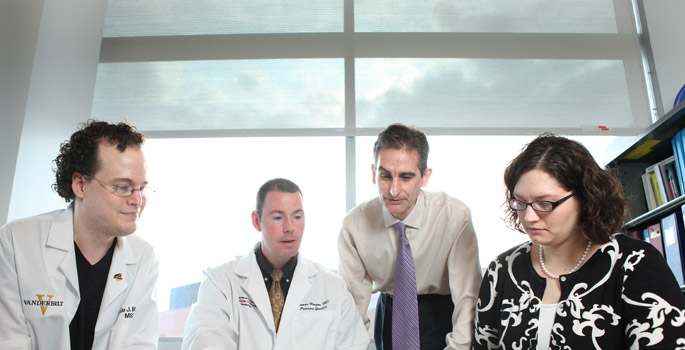
Evolution points to genes involved in birth timing
Researchers have identified a gene associated with accelerated evolution in humans that may increase some women's risk to deliver their baby prematurely. Read MoreApr 19, 2011